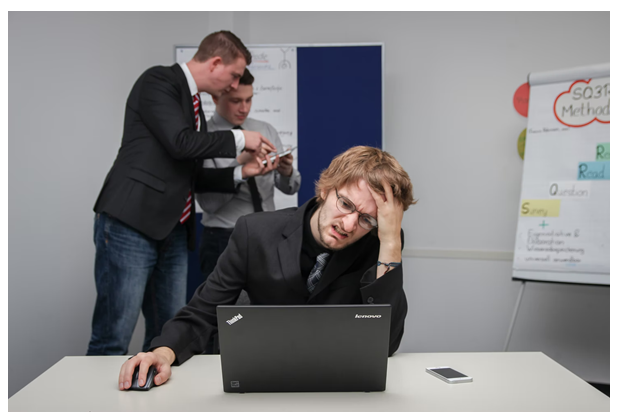Burnout
September 29, 2021 - Reading time: 4 minutes
Burnout is one of the top 3 corporate diseases. How does it look like? Employees experiencing this condition are less productive, more likely to take sick leave, and twice as likely to quit.
The problem of professional burnout was acute even before the pandemic. For example, in 2005 at the WHO European Conference stated that almost one-third of the working population of the European Union is affected by stress at work.
According to the Flexjobs and Mental Health America 2020 survey, 75% of respondents notice they experienced symptoms of burnout. Data from such sociological surveys show the real existence of the problem.

What is emotional burnout?
The notion of emotional burnout was first introduced in 1974 by American psychiatrist Herbert Freudenberger. He noticed that professionals of such professions as - doctors,psychologists, teachers - emotional exhaustion appears and grows with time. That causes a decrease of emotional reaction to events, even important ones; people become indifferent to their surroundings and to things that previously involved them.
Since then, the topic of professional burnout has attracted more and more attention from various researchers from different countries. For example, in Japan, there are statistics of deaths from overwork, including suicides against the background of work stress.
Why does that happen?
At least three reasons for the growth of burnout, and the key factors are psychological.
Fear of the unknown
People faced the fear of the unknown, of illness and death, with incomplete and contradictory information: in March 2020, it was unclear how dangerous the new coronavirus infection was, it gave rise to health anxiety.
Changing routines
Many had a dramatic lifestyle change, most suddenly switched to remote work, and some lost their place - so there was anxiety about their career future and finances.
Increased workload
Those who continued working began to spend more time on it and became more tired - including the need to adjust to the new remote format and the fear of quitting. All of this takes an emotional toll. And when one experience overlaps with another, a person becomes exhausted faster. As a result, burnout is developed.
What you can do for a healthy productivity
As you've learned by now, burnout is a nasty thing, not easy to recognize, and even harder to deal with. So we made a small list of things that can help you always stay resourceful and maintain a work-life balance.
Meditation
Meditate for 15 minutes a day. Meditation is the easiest and fastest way to slow down and reduce stress. You don't need to elaborate poses and expensive mats to meditate, the most important thing is to completely disconnect your brain from all problems.
Travel
Take a vacation to a place you have never been. Do something you always wanted to do. You’ve dreamed about driving a Ferrari in Dubai? Allow yourself to do that! You don’t have to buy one though, you can use rent Ferrari Dubai services.
If you are low on budget, take a trip to nature. The best way to distract yourself is to change the picture that surrounds you. You don't have to fly to the ends of the earth - even a two-day trip to the country can powerfully reset your head, and you'll return rested and full of energy.
Use planning
Plan for the day. Chaos is burnout's best friend, which means good planning will help you avoid it. No one is forcing you to scribble everything you do, but a little to-do list for each day will save your nerves!
Visit a Specialist
Go see a psychologist. Today's fashionable tradition - psychotherapy sessions - is a very useful thing. There can be more than just fatigue behind burnout, and instead of self-copying, it is better to work things out with a specialist.
Don’t do everything on your own
Delegate tasks if possible. Being able to let go of control of everything around you is a sure way to stay away from burnout. In addition, everyone should do their own thing, in which they are an expert, and you can’t be an expert in absolutely everything. Especially for household needs - there's no shame in calling in a cleaning service, ordering takeout, or inviting a babysitter.
Eat well
Limit yourself to junk food. Eating junk food takes a toll not only on your appearance but also on your emotional state. We are well aware that in this way you are trying to eat stress, but it's a vicious circle, which leads to nothing good. Build a harmonious relationship with food,and you will not notice that you will become less irritable and tired.
Use healthy routine
Go to the gym. Or go dancing. Or at least go for a walk. While moving improves blood flow in the brain area, we become more positive and efficient.
Train yourself to fall asleep and wake up at the same time. Sleep is a powerful tool that allows you to completely reset your brain. However, we must remember that the brain is controlled by the "biological clock" (circadian rhythms), which were not invented. Get your sleep routine right - you'll get your relationship with your work right, too.
It’s really hard to find the right balance between being over-productive and healthy, but we hope our small advices will help you stay out of burnout.
Author: Evelina Brown